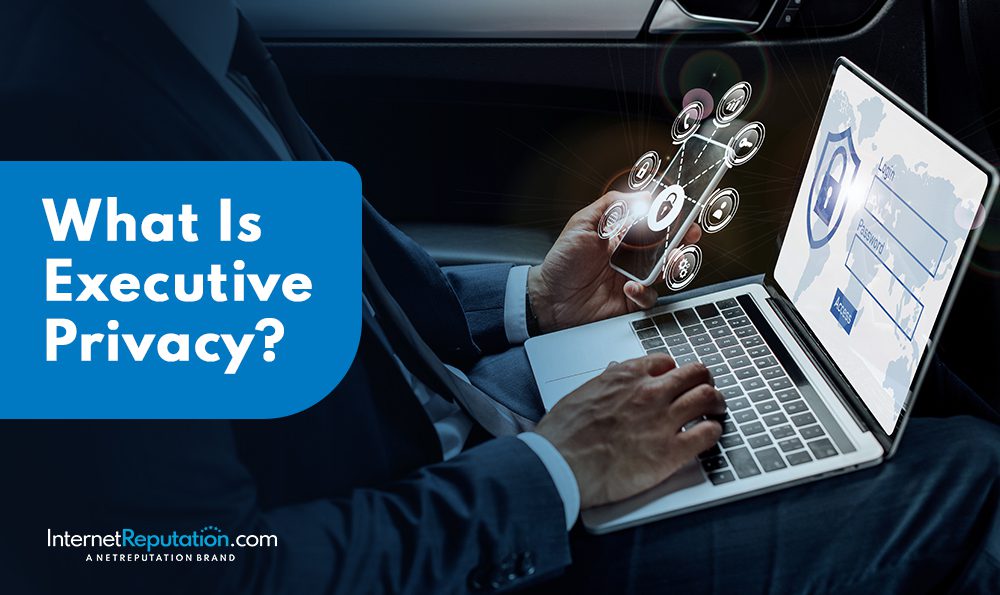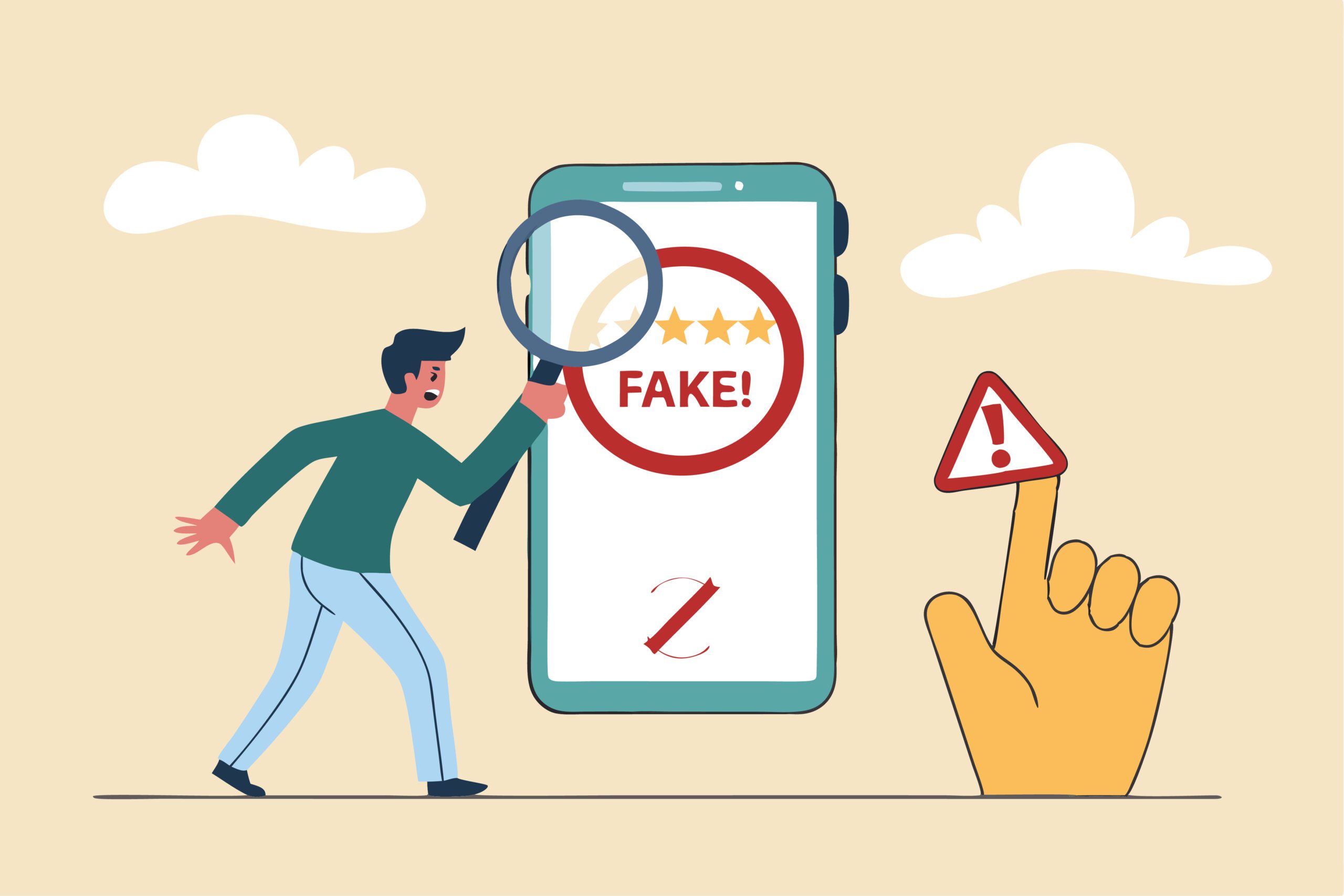What Is Executive Privacy?

What is executive privacy, and why is it so important to understand? In this article, we discuss how to safeguard your professional and personal information with executive protection. For more information on securing it, fill out our contact form here to connect with us directly.
What if you and your company were more vulnerable than you could ever imagine? In today’s world, your online identity and personal information are at constant risk of being exposed and exploited for vulnerabilities.
Your business competition isn’t the only thing you have to worry about. Individuals who use info search sites can pose a threat, too.
If you’re a company executive, a breach of your privacy can put the entire business at risk.
This is why executive privacy is so important to understand. Still, far too many execs continue to ask the questions, “What is executive privacy, and why is executive privacy so important?”
Today, we’re going to explore this topic in-depth, and you’ll learn how to protect yourself, your sensitive personal information, and the company you have sacrificed so much for.
What Is Executive Privacy? How To Safeguard Your Personal Information With Executive Protection Techniques

In this guide, we’re going to explain the role of executive privacy, including how to improve your safety and your family’s safety.
First, though, we need to answer the big question: What is executive privacy, anyway?
Simply put, “executive privacy” refers to the privacy of a company’s executives. To some extent, this refers to physical privacy. But these days, the most persistent threat to your privacy comes from the internet.
Everyone has suffered from the occasional phishing scheme or scam phone call. But you must now be wary of increasingly sophisticated attempts to steal your data and threaten your company.
That’s the bad news.
The good news is that with the right information and a few easy safeguards, you can protect your executive privacy against 21st-century threats and avoid exposing your sensitive information.
Common Ways Your Sensitive Information Can Be Exposed
It’s easy to dismiss threats to your online privacy. However, that often happens when an executive doesn’t know how easily their data can be exposed.
Typically, your data is not gathered in huge chunks by nefarious online forces. Instead, individuals and information-sharing companies called data brokers gather smaller bits of data from a variety of sources and put it together in a way that reveals sensitive info about you, your family members, and your company.
For example, there may be very basic information about you from a public company’s marketing report. The report may include your full name, and from there, additional sensitive information can be taken from your social media accounts.
That information may be enough to help someone gain access to your accounts and personal devices. At this point, they could have enough information to seriously damage your reputation.
That may sound like a lot of work for the average online criminal. Someone who has it out for you or your company, though, can hire the services of data brokers who specialize in gathering all of a person’s sensitive online information together in one package.
The True Threat of Cybercrime
Why the focus on executive protection instead of basic online privacy? The reason is simple: High profile executives typically have access to sensitive documents, databases, emails, and more that the average employee simply doesn’t have access to.
Plus, cyberattacks go far beyond identity theft. Attacks on high profile executives have unlocked access to sensitive corporate data and more, putting this data in the hands of bad actors.
While some of these attacks are more sophisticated than others, the sheer number of attacks that occur emphasizes the need for solid executive privacy solutions.
Risks To Your Home and Family Members
In the past, it was much easier to separate work life from home life. When there’s a clear distinction, business attacks don’t typically make their way into your personal life.
However, with more and more people working from home, executive protection now overlaps with personal online privacy more than ever.
While working from home is a great perk that some employers offer, it’s easier for WFH employees to have their personal addresses and phone numbers exposed to data brokers.
Once someone gets ahold of your phone numbers or home address, there are a number of threats to be concerned about. For starters, it may be easier to find more in-depth private information about you online once someone has your address. And in very serious cases, a person can show up at your home or even attempt a break-in.
Fortunately, you can begin proactively exploring executive protection options and solutions today by calling our experts at 941-259-4554. We can help you protect your personal and business data to stay safe online.
What Are Different Kinds of Online Threats?
Earlier, we mentioned that threats to your online privacy are becoming more sophisticated. What do more sophisticated threats actually look like, though? Let’s go over some of the most common ones.
Spear Phishing
One popular method of attack is known as spear phishing. This involves collecting bits of personal information about an executive one bit at a time, much like someone spearing for fish in the ocean.
Think of it like this: There is a lot of information available about you online that seems innocent enough. This might include where your children go to school, where you last worked, and so on.
With even this basic, surface-level information, a dedicated scammer could, for example, impersonate someone from your child’s school to get information out of you or find out your whereabouts. If they ask for your email address, they could send you an email that contains malware, which would send your sensitive data to bad actors.
Whaling Attacks
Another common kind of attack is known as a whaling attack. This is a high-risk, high-reward fraud technique where someone outright impersonates you or another executive. A whaling attack targets high-level executives.
If the impersonation is successful, a fraudster might be able to get someone to disclose sensitive information. In a worst-case scenario, they may be able to get someone to wire funds to a third party.
It’s easy enough to uncover this fraud after the attack. But once the information is disclosed or the money is sent, the damage is done.
Taking Your Executive Protection To the Next Level
Now that you understand the importance of executive privacy and executive protection, you may be wondering which steps you can take to stay safe online.
At InternetReputation, we pride ourselves on our ability to monitor executive privacy and prevent threats before they even happen. Our suite of executive protection solutions is unmatched.
To learn about our executive protection services to safeguard you, your company and your loved ones, call us today at 941-259-4554.








